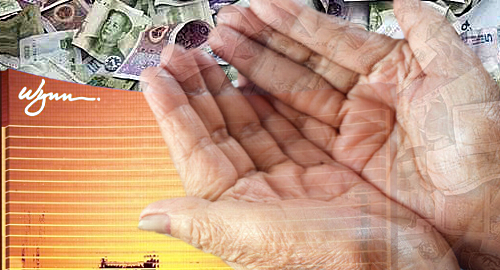 Casino junket operators are asking Macau’s government for tax relief and more help in chasing down VIP gambling debtors.
Casino junket operators are asking Macau’s government for tax relief and more help in chasing down VIP gambling debtors.
Tuesday’s edition of the Macau Gaming Summit 2018 saw junket operators take the stage to suggest the government reduce its current 39% gambling tax (35% tax on revenue + 4% gambling sector tax) to a rate more in line with Singapore (12%) or the Philippines’ variable rate (15% for foreign VIPs, 7% for locals), to make the market more enticing to high rollers.
While Macau’s VIP gambling market eventually rebounded from over two years of negative growth, junkets are still struggling with the legacy of that downturn, including significant red ink on their books from VIP gamblers who proved unable or unwilling to honor their credit markers.
For years, junkets have sought the creation of an industry-wide bad debtor blacklist, but these efforts have been stymied by Macau’s strict data protection laws. On Tuesday, Tak Chun Group CEO Levo Chan said banks had tools to protect themselves from bad credit risks while VIP gamblers “can just go to other companies” if their credit is rejected by any one junket.
Kwok Chi Chung, who chairs the local junket industry association, suggested that the introduction of a “loan central system” to keep track of gamblers’ credit history would benefit both the industry and the government.
David Group vice-chairman Weena Sae-Kee added that junkets expended a lot of time and effort chasing debtors, leaving junkets vulnerable to bankruptcy if debts can’t be collected. She added that there should be “a sound mechanism to collect debts even outside Macau.”
In response to these pleas, Paulo Martins Chan, director of Macau’s Gaming Inspection and Coordination Bureau (DICJ), said Macau’s government planned to amend its gaming laws “to make sure that the industry remains safe and healthy” although he offered no specifics.
Chan claimed that the Darwinian thinning of the junket herd caused by the market’s prolonged downturn resulted in a sector “more capable” of financial management and operations. The number of Macau’s licensed junkets currently stands at 109, barely half their number just a few years ago.
WYNN PARTIALLY ON THE HOOK FOR JUNKET THEFT
Meanwhile, junkets got an indirect leg-up last week from a Macau Court of Second Instance ruling that found casino operator Wynn Macau partially responsible for repaying some of the money that vanished in an internal theft by a Dore Entertainment junket staffer in 2015.
In April, Macau’s Court of First Instance ruled that Dore was solely responsible for HKD6m (US$766k) deposited by one of its clients, while letting Wynn Macau off the hook.
But the higher court ruled that while Dore ran the VIP room at Wynn Macau, local regulations make gaming concession holders responsible for overseeing activity on their premises. It was therefore “reasonable and logical” to hold Wynn jointly liable for repaying the customer’s deposit. Wynn has yet to indicate whether or not it will appeal the latest court ruling.
SJM Holdings chairman Ambrose So told local media that the ruling would likely make casino concessionaires “more cautious” in their dealings with junkets but it was “too soon to judge” whether or not the ruling had set a legal precedent. So suggested that Macau’s government would enact new regulations to clarify the responsibilities of each party.